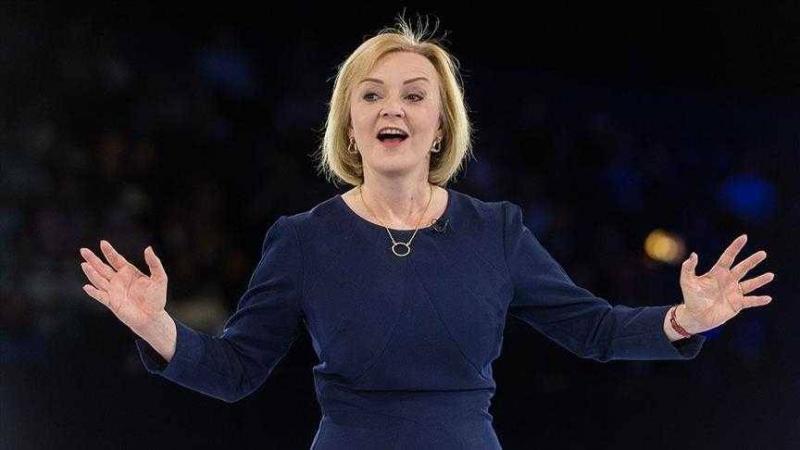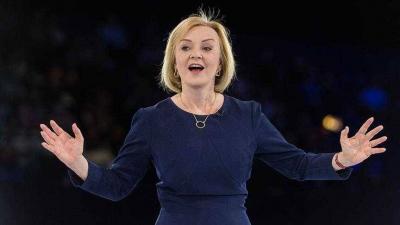With the selection of Foreign Secretary Liz Truss by the approximately 160,000 members of the Conservative Party to take the party leadership position, the path is clear for her to lead the government in Britain. Truss's selection comes as a successor to Boris Johnson, who stepped down from the leadership of the Conservative Party following a rebellion within his government team, in protest against the scandals surrounding him and the economic situation in the country.
### Who is Truss?
Born in Oxford in central southern England in 1975 (47 years old), she comes from a middle-class family with strong leftist convictions. She was first elected as a Member of Parliament for South West Norfolk in 2010. Truss gained popularity among Conservative Party members due to her liberal views on economics and trade.
She is the second woman to hold the position of Foreign Secretary and is nicknamed the "Iron Lady." She contributed to the imposition of sanctions on Moscow and the Russian oligarchy following the Ukraine war. She has held several ministerial positions and played a role in negotiating trade agreements after the UK's exit from the European Union while serving as International Trade Minister, before reaching her current position.
### Key Promises
- Not to impose any new taxes and to cancel the planned increase in corporation tax.
- To suspend what is known as the "green tax," which is part of the energy bill paid for social and green projects.
- A commitment to spend 2.5% of GDP on defense by 2026, aiming to raise this percentage to 3% by 2030.
### Huge Challenges
Since Johnson announced his resignation, growth forecasts have declined, inflation rates have risen above 10%, and fuel and food prices have surged. There is significant frustration over the rising cost of living, alongside strikes involving hundreds of thousands of workers in ports, trains, and mail services. The pound has experienced its worst month since the period following the Brexit referendum.
The Bank of England has forecast inflation to jump to 13% amid worsening energy crises. Citigroup estimates that inflation in Britain could peak at 18% early next year. Britain has become the sixth largest economy in the world, ceding fifth place to India. Political analyst Andrew Boifield remarked to "Sky News Arabia" that Britain faces significant economic challenges and unprecedented strikes, suggesting that Johnson will leave a heavy economic legacy for his successor. Boifield further notes, "There are similarities between the current situation and the circumstances that brought Margaret Thatcher to power four decades ago. Companies, factories, and homes are facing harsh challenges this winter due to the energy crisis, and Conservatives tend to have an older Prime Minister than the rest of the population."
### Government Transition Ceremony
Johnson is expected to submit his resignation to Queen Elizabeth II on Tuesday at her summer residence in Balmoral, Scotland. Following that, the Queen will welcome Liz Truss to become the 15th Prime Minister during her 70-year reign. Truss will then return to London to give her first speech outside the government headquarters on Downing Street before forming her government and facing opposition leader Keir Starmer for the first time in Parliament on Wednesday.




